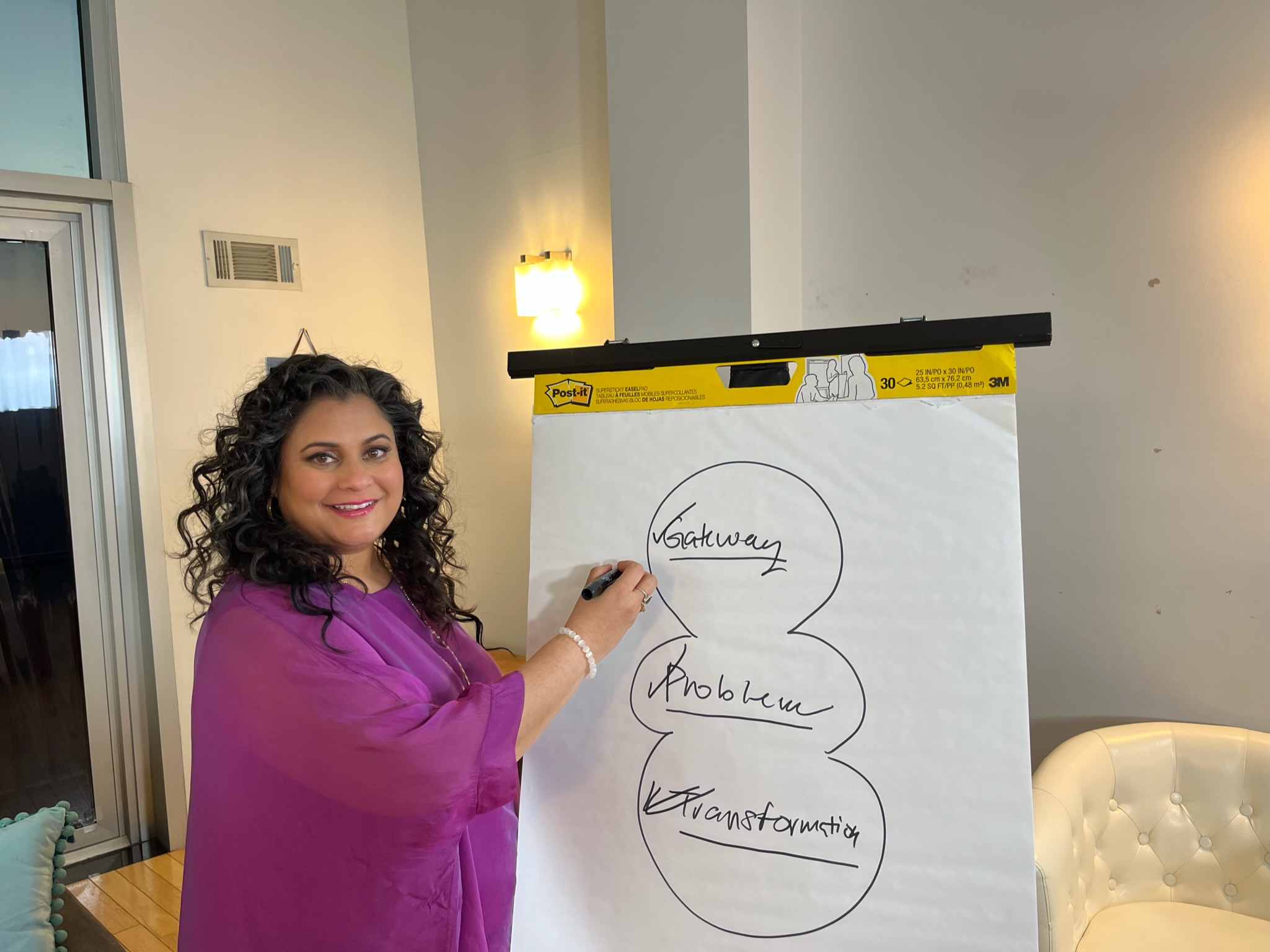Managing Disappointment: Your New Superpower
So many of the entrepreneurial women who come to me have told me that they get to the end of the month – especially the month of September – and find themselves full of disappointment.
Maybe the launch they tried didn’t get much traction, or their 10-person group program only got three sign-ups, or they were trying to write a book and just didn’t get it done, or they looked in their bank account and just didn’t see the money that they thought was going to be there.
Disappointment is one of the heaviest emotions that you can feel as an entrepreneur. It’s upsetting, it’s exhausting, and it can really suck your vital energy force if you don’t know how to manage it.
So I’m here to normalize disappointment.
I know that so many business coaches and experts are selling you programs and products that are supposed to keep you from ever feeling disappointed – like if you follow these five steps, you’re always going to have success.
Because of this, I’ve noticed this common sentiment that if you’re experiencing disappointment you’ve done something wrong, that it’s your fault, that you just can’t pull this off like everybody else can.
And that’s simply not true. Disappointment is part of being an entrepreneur. In fact, disappointment is a healthy part of being an entrepreneur. All of us are trying new things, and it’s healthy to recognize that they won’t always work out.
Truthfully, the only way to keep yourself from experiencing disappointment is to hide. Some of you are doing just that – you’re planning and organizing but not actually taking actions because you’re so afraid of disappointment.
This week, I’m going to walk through six steps for managing disappointment. I highly suggest that you somehow save this newsletter article so that you can reference it when things get tough.
Because when you’re not afraid of disappointment, you’re not afraid of moving forward, no matter what’s ahead of you – and that can become one of your superpowers.
Step number one is proactive: don’t be afraid of disappointment. Disappointment is just one of those emotions that we all have – it’s as normal as feeling happy, nervous, fulfilled, or excited.
Step number two: when disappointment strikes, let yourself feel all the feels. You’re going to feel it in your belly, in your chest, maybe in your neck and throat, or maybe through a headache. Don’t resist it. Lean in and breathe into it.
Number three: write down the story that you’re making up. Most of us make up stories about the things that happen in our life. I talked about this in last week’s newsletter, but I’ll give you an example.
Maybe you just held a webinar, and nobody bought your program. You might be making up the story that you’re boring, you’re never going to make webinars work, and you’re never ever going to sell anything to anyone.
Typically that story is not true. Writing it down can help you see the untruth of the story you’ve concocted.
Step number four: change the story to something that’s more supportive. Following our prior example, the new story might be that you did a webinar and nobody bought it but you can work to hold more successful webinars in the future.
If you’re struggling to change the story, I really, really recommend that you talk to a business coach, because it can be so hard to change the story on your own. Sometimes it helps to have someone look over your shoulder and give you a more objective assessment of what happened.
Number five: notice that you’re still feeling waves of disappointment. Just because you felt all the feels, wrote down your story, and changed the story, doesn’t mean that the actual feeling of disappointment is going to leave your body.
It’s important to remind yourself that these feelings will come and these feelings will go. After a while, the waves will get farther and farther apart, and you’re going to feel better. Nothing is permanent.
This leads us to step number six: if, after a while, you’re still struggling to process and let go of disappointment, make sure you get some help around it. I find that, in this situation, it’s great to talk about your disappointment with a business coach, therapist or healer.
It’s also great to get some body work – maybe a massage, a healing, or a healing acupuncture session – to help release the disappointment from your body.
So my invitation to you this week is to print, bookmark, or screenshot this step-by-step breakdown. Keep it ready for the next time you’re grappling with disappointment, whether you’re experiencing it or avoiding it.
I want you to know that you are powerful. When you know how to manage disappointment, you can sit with it, move through it, and move on to the next action on your path.








